Belinda Gets ‘Indómita’
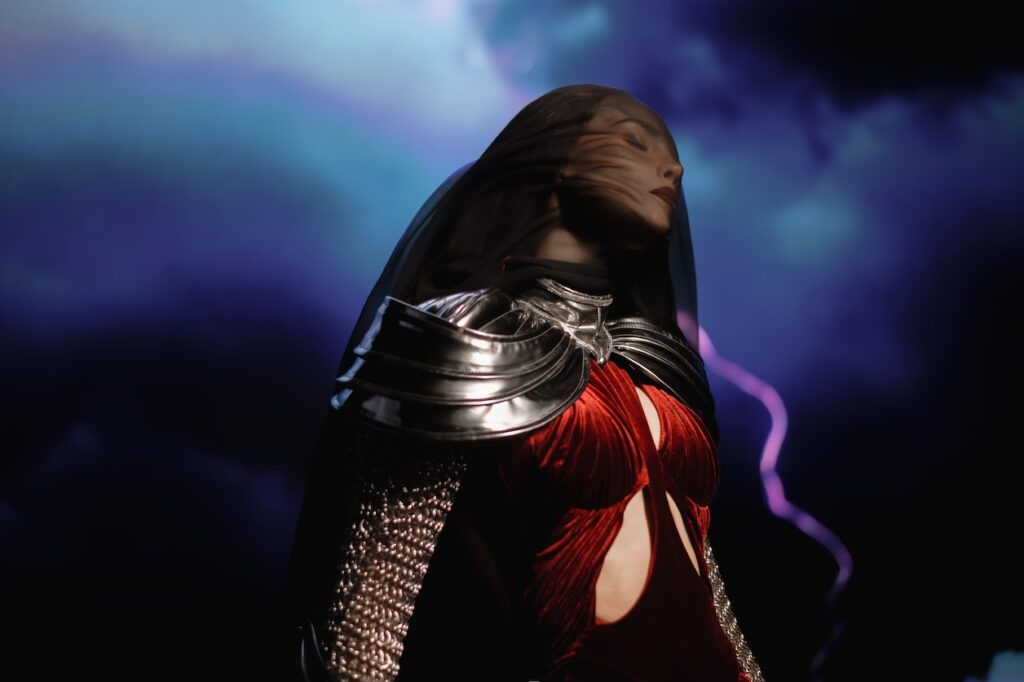
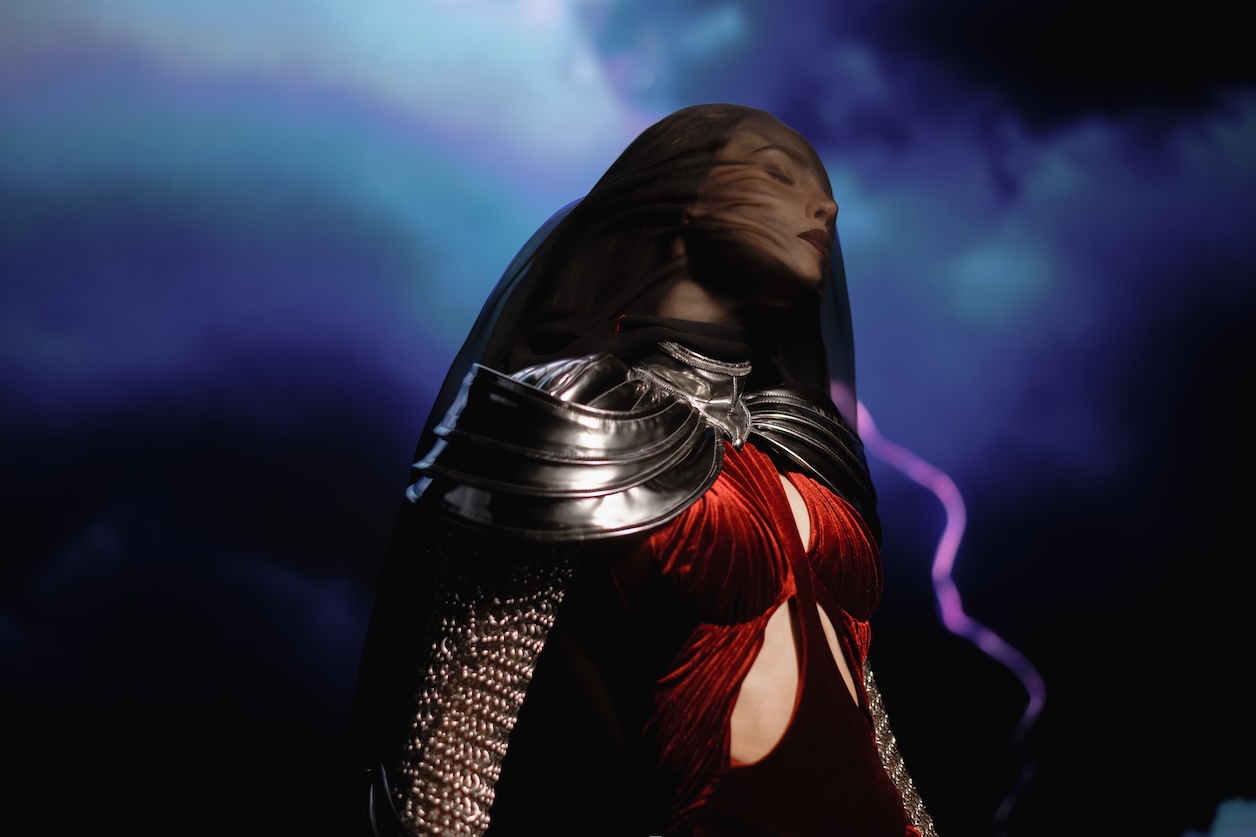
Being in the company of Mexican superstar Belinda feels like being in the presence of a real-life Disney princess. And she’s not even on camera, because, as she explains, “I’m in my pajamas.”
The multi-hyphenate talent has earned the right to have some off-camera time as she cycles through Zoom interviews ahead of the release of her long-awaited album, Indómita. Just eight days after the album drops, Belinda’s latest television series, Mentiras, premieres on Prime Video Mexico. Two weeks before our chat, she was at Cannes as brand ambassador for L’Oréal Cosmetics at a flurry of premieres and events.
More from Spin:
- After 48 Years, Talking Heads’ ‘Psycho Killer’ Has A Video
- With Their New Single, 2ŁØT and Aloe Blacc Inspire Us to Become ‘Immortal’
- 20 Years Later, Clap Your Hands Say Yeah Reissues Their Debut Album
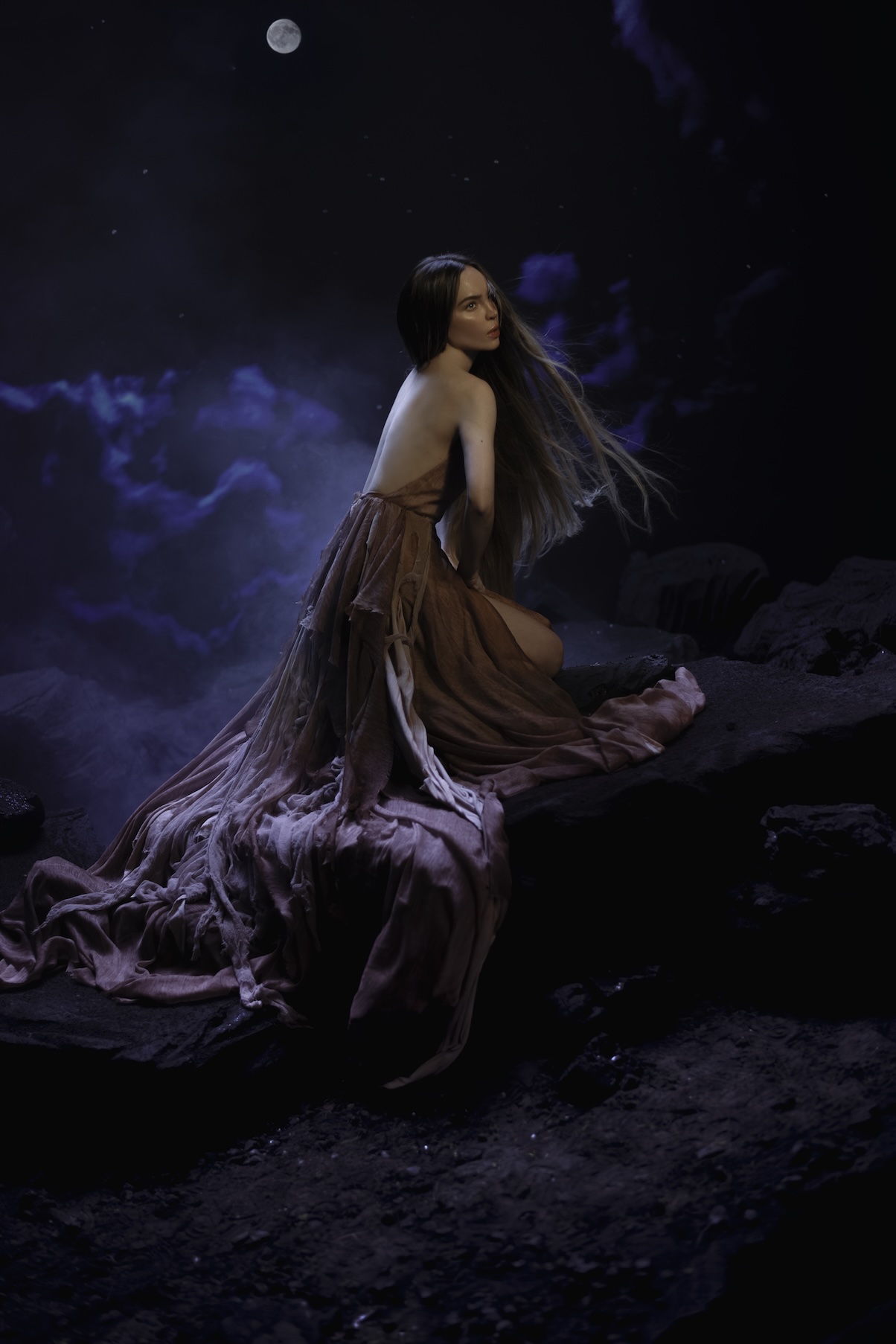
Belinda’s used to the whirlwind that has been her life since she first came into the public’s consciousness at the age of 10 in the Mexican children’s telenovela Amigos x siempre. A bona fide child star, Belinda racked up screen credits before releasing her self-titled debut album at 14. Belinda sold over a million copies, and its follow-up, Utopía, earned her two Latin Grammy nominations.
She continued her dual creative careers in tandem, releasing two more albums, Carpe Diem (2010) and Catarsis (2013), while maintaining a busy acting career that included The Cheetah Girls 2. She also served as a judge on La Voz, the Mexican version of The Voice.
If her trajectory sounds like that of a Disney kid, that’s because it kind of is. With Latin music being so huge in North America, it’s the perfect time for Belinda to step into her hard-earned position as one of its leading figures alongside Rosalía, Anitta, Shakira, Kali Uchis, and the Gs: Karol and Becky. Not to mention Bad Bunny, J Balvin, Maluma, and Juanes.
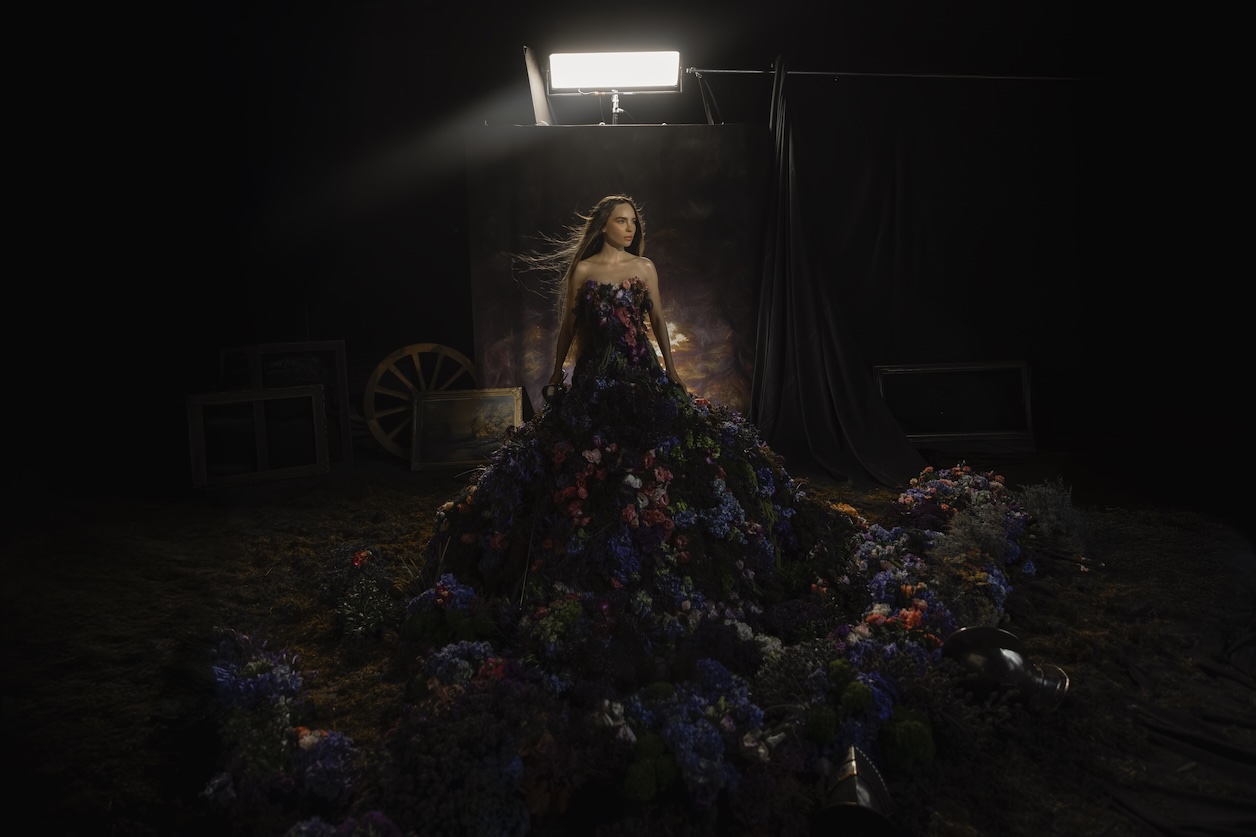
While Indómita is Belinda’s first full-length album in a dozen years, she’s been releasing music with various collaborators all along. “This is my fifth album,” she says of Indómita, which includes some eye-catching collaborators, “but I haven’t done something where I wrote all the songs and was involved with all the process. It’s a very personal album.”
Belinda is charming and considerate. Even her speaking voice is musical and appealing. When she can’t immediately think of the English word or phrase, she quickly asks someone on her team for help. Sometimes I’m able to give her the word she’s looking for, which makes me feel accomplished. Belinda is gracious and polite, and by the end of our conversation, I find myself rooting for her even more than I was at the start.
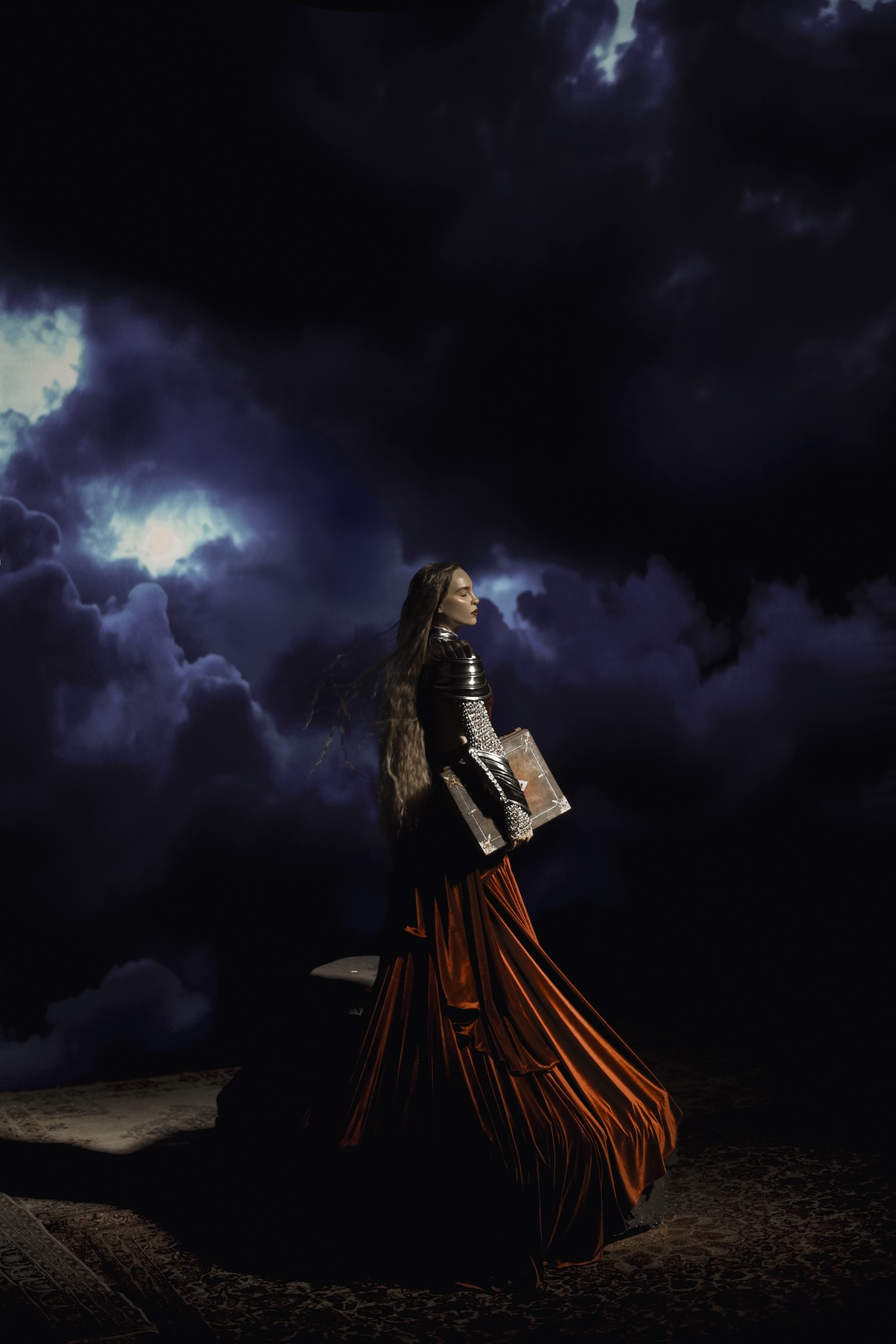
Female empowerment has always been central to your work. Over the course of your career, have you felt the industry was dominated or dictated by men? Do you think that’s changed?
Oh, absolutely. I’ve seen this process, and it’s been slow. It’s been a little faster the last couple of years. For women in this industry, it’s been a little better. But five, eight years ago, it was completely different for women. It was much more difficult. They judge you. You need to be a good dancer. You need to be a great singer. You need to look good. You need to dress great. Your makeup needs to be incredible, and your hair. Guys, maybe they don’t seem great, but they’re forgiven for absolutely everything. They’re not so judged by the audience. So yes, I’ve gone through all this process, but I think it’s getting better, and it’s going to take more time. This album is an anthem for girls, because it talks about an independent woman, strong, powerful. I was inspired by Joan of Arc, by Frida Kahlo, powerful women. Indómita, indomitable.
Does the album’s title reflect your intention for it?
It’s funny because I knew that I wanted this name before I wrote all the songs. I know I sound very Disney and romantic, but it’s true when things are meant to be. When you feel something—and I feel goosebumps right now, because I remember the first time I thought about this word and how strong and powerful it is. When I knew I wanted to have this name for the album, I remember the feeling. I had dreams about this name. I didn’t have a second option. After the title, everything came along, and I started writing the songs, like it was meant to be.
Julia Lewis comes up a few times in the credits, and Marcelo Rivera too. What made you want to work with them?
Obviously I need to have a connection in the studio with the producers and the writers. When I started working with Julia, he’s so passionate, he’s so meticulous, he’s so perfectionist. He knows what it’s going to sound like. And a very important thing, he trusts me. He knows that maybe it’s not going to sound great, but we’re going to try. I’ve worked with other producers, and the second I say, “Let’s try this with this,” they say, “No, it’s not going to work.” I worked with these producers because they respect my ideas. And if it doesn’t work, we say, “Okay, at least we tried.” They’re open to my thoughts and my inspiration and what I need to say and what I want to sound like. Not many producers are willing to experiment with different sounds. We have an album that’s very original and different, and we created it from zero. It’s not a copy of anything. It’s me. It’s very authentic. It’s the way I feel. I’m happy about that, and the producers respected that, so I’m very grateful. They’re very talented and amazing in every single way.
It’s great you had so many ideas you wanted to explore.
Totally. It’s very important. Don’t get me wrong, there were times that I was like, “Oh my God, what are we going to do today?” Because sometimes you get in the studio and you don’t feel inspired. They inspired me even when I didn’t bring an idea. If I’m honest, most of the time, I had an idea, and I know what I want, and I know how I want to sound like, and that’s the most hard. The hardest thing for an artist is to know what they want, because it’s very hard to find your identity and your authenticity. With this album, I hope people see that it’s me.
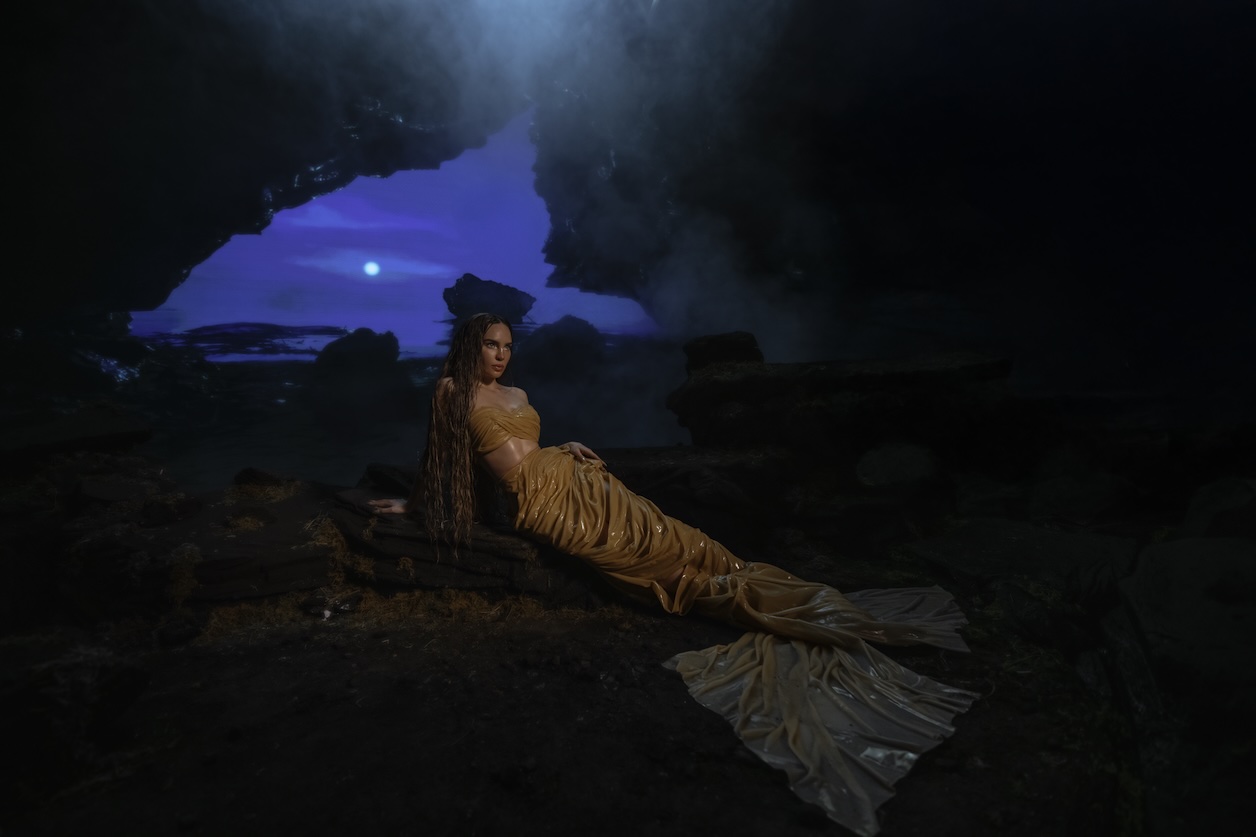
What inspired you to tap into traditional Mexican music on Indómita?
I was crazy about corridos tumbados since I heard Natanael Cano—that is one of the collabs [on the album]—one of the most important musicians in this genre. I say musician because he plays all the instruments. It’s incredible how talented he is and how he writes his songs. He’s a real artist. I was crazy about the trumpets and the trombone and all these amazing Mexican instruments. I was like, “Oh my God, I want to do something like this.“ You see all these guys doing it, but you don’t see women doing this kind of music. For me, it was also empowering for other girls to do this kind of music. I was driven by this also. I want to open doors for girls who think that it’s very masculine and very stereotyped for guys. It was important for me to do my version of this kind of music. My songs are also pop and feminine and dreamy.
What was it about the collaborators on Indómita that made you want to work with them?
Netón Vega is amazing for reggaeton. I needed to have a reggaeton, because I love reggaeton, and he’s Mexican, which is great. Tito Double P is amazing for corridos tumbados also, and he wrote the song with me, which is great. Every collab I have is very organic, because they wanted to be in this album. They believed in the project. That’s also very gratifying. Because in the past, oh my God, to have a collab with artists was so much work.
What was it like working with 30 Seconds to Mars?
Amazing. I’ve known the band for many years. We’re friends, and we respect each other. I play drums. Shannon Leto, the drummer of 30 Seconds to Mars, he’s also amazing and a great musician. This collab is like a dream come true for me. I never thought it would happen. For my fans, it’s also important that I do pop rock. That is my favorite genre in the world.
What impact do you think you’ve had on the rise of Latin music in the U.S.?
I think that people judge me more because I started very young. They demand more of me. My fans are like, “We expect this.” They’ve had the best of me in every project, and they expect more, and they’re more anxious. If I were a new artist, they wouldn’t expect anything. In that way, it’s a little more demanding. At the same time, it’s given me a lot of experience. I want to make me happy first, and then I think about them. I love Indómita. I’m going to defend it with all my heart. If people like it, amazing. If people don’t like it and criticize me, I’m used to it. I don’t take it personal.
Does having the public’s attention change how you approach the creative process?
Yes, but I’ve learned that you’re never going to make someone happy completely. This is something that took me a long, long time to understand. If they’re going to have an opinion, good or bad, it’s part of life. We need to make ourselves happy first.
With Mentiras premiering just after Indómita’s release, how do you navigate switching between creative mediums?
With music, you’re way more vulnerable because you’re exposed and it’s you. You’re not playing a character. But at the same time, it’s also playing a role when you do music videos, and I love that. Also with music, you can act, and you can have a character. When I’m on stage I’m like super Leo, a leader, and I own the stage. But it’s also a character that lives inside me, an alter ego. I have so much power, and I feel very secure, more than when I’m off stage. When I’m off stage, I’m more shy. I’m secluded. It’s funny, because I should be more scared of 10,000 people than walking on the street, but it’s just a moment of power, and it’s different. I love both. I enjoy both. They’re both part of me, acting and music. I embrace both things.
How do you stay grounded and separate yourself from your public persona?
It’s hard. I try to do normal things and be with people that love me because of Beli and because I’m famous. My grandma used to say, “Beli, do your bed. Beli, help in the kitchen. Beli, help in the house. Do this, do that.” I remember her words, and I try to do it without her telling me to do it because she died. But I still have her voice in my head saying, “Beli, do your bed. You’re not a singer here. Beli, clean this. You’re not a famous person here.” I remember that all the time.
To see our running list of the top 100 greatest rock stars of all time, click here.





